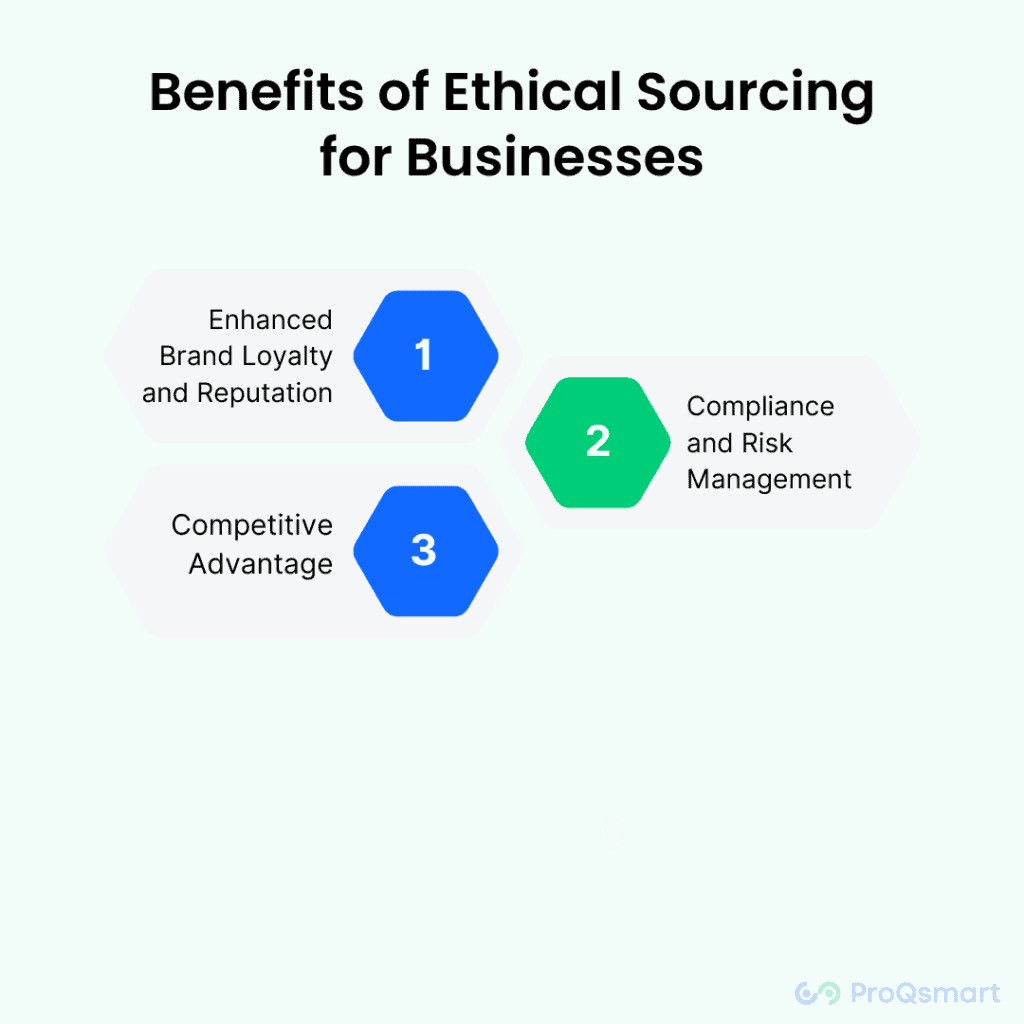In the realm of procurement, the term “ethically sourced” has become increasingly significant as businesses recognize the importance of aligning their purchasing practices with ethical standards. Ethical sourcing refers to the process of procuring goods and services in a responsible manner, taking into account both environmental sustainability and social responsibility. As consumers grow more aware of the origins of the products they purchase, procurement professionals must prioritize ethical sourcing to meet these expectations. This blog post will explore the definition, significance, and implications of ethical sourcing within the context of procurement, highlighting its essential role in promoting sustainable business practices in today’s global marketplace.
Defining Ethical Sourcing
Sourcing is the process of ensuring that the products being sourced are obtained in a way that respects the workers and the environment. It involves commitments to transparency, sustainability, and fair labor practices, ensuring that every step of the supply chain adheres to standards set by the company or by governing bodies.
The Key Components of Ethical Sourcing
Ethical sourcing is a vital aspect of modern procurement practices, emphasizing responsible and sustainable methods of acquiring goods and services. This approach not only addresses the needs of businesses but also considers the welfare of workers and the environment. Below are the key components of ethical sourcing, elaborated for better understanding, particularly in industries such as construction, manufacturing, and interior fit-outs.
1. Social Responsibility
First and foremost, social responsibility in ethical sourcing focuses on ensuring fair wages and safe working conditions for all workers involved in the supply chain. For instance, in the construction industry, it is essential to monitor subcontractors to guarantee compliance with labor laws and safety regulations. Additionally, prohibiting child labor and forced labor is crucial, thereby protecting vulnerable populations from exploitation.
Moreover, fostering diversity and inclusion within the workforce is also an important aspect of social responsibility. By promoting equal opportunities for all individuals, organizations can contribute to a more equitable society. Furthermore, engaging with local communities and supporting their development can enhance relationships and build trust between businesses and the communities they impact.
2. Environmental Impact
In addition to social considerations, minimizing environmental degradation is a core principle of ethical sourcing. Organizations in manufacturing and construction should strive to reduce their carbon footprint by adopting sustainable practices throughout their supply chains. This includes using eco-friendly materials, implementing energy-efficient processes, and reducing waste.
For example, in the interior fit-out industry, sourcing materials from suppliers that utilize sustainable resources or engage in responsible waste management practices can significantly contribute to overall environmental health. Furthermore, companies can enhance their environmental impact by prioritizing suppliers who demonstrate a commitment to sustainability.
3. Economic Viability
Economic viability is another critical component of ethical sourcing. This involves creating economic opportunities for underprivileged communities by prioritizing local suppliers and small businesses. Supporting these entities not only stimulates local economies but also fosters sustainable growth.
In the construction sector, for instance, partnering with local contractors can lead to job creation and community development. Additionally, organizations can invest in training programs for local suppliers to enhance their capabilities and competitiveness in the market. By building strong partnerships with local businesses, companies can create a more resilient supply chain while contributing positively to the communities they operate in.
4. Transparency and Traceability
Transparency is essential in ethical sourcing as it builds trust among consumers and stakeholders. Organizations should ensure that their supply chains are traceable, allowing them to monitor the origins of their products and verify compliance with ethical standards.
Implementing technology solutions such as ProQsmart can enhance traceability by providing a secure and transparent record of transactions throughout the supply chain. This not only helps verify claims related to ethical sourcing but also enables companies to respond quickly to any issues that may arise.
5. Continuous Improvement
Lastly, ethical sourcing is not a one-time effort; it requires continuous improvement and adaptation. Organizations should regularly assess their sourcing practices and seek feedback from stakeholders to identify areas for enhancement.
By setting measurable goals related to social responsibility, environmental impact, and economic viability, companies can track their progress over time. Engaging with third-party auditors or certifications can also provide valuable insights into best practices and areas needing attention.
Why is Ethical Sourcing Important?
Ethical sourcing is not merely a moral obligation; it is also a strategic business approach that can significantly enhance a company’s brand reputation, drive consumer loyalty, and ensure compliance with international standards and laws. Below are key points that highlight the importance of ethical sourcing in today’s business environment:
1. Enhances Brand Reputation
First and foremost, companies that prioritize ethical sourcing can build a strong brand reputation. When consumers recognize that a company is committed to responsible practices, they are more likely to trust and support that brand. This positive perception can lead to increased customer loyalty and long-term relationships.
2. Drives Consumer Loyalty
Moreover, as consumers become more conscious of social and environmental issues, they are increasingly inclined to support businesses that align with their values. By investing in ethical sourcing practices, companies can attract a broader, more conscientious customer base. This loyalty not only boosts sales but also fosters a community of advocates who promote the brand.
3. Ensures Compliance with Regulations
In addition to enhancing reputation and loyalty, ethical sourcing helps companies comply with international standards and laws. As regulations around labor practices, environmental impact, and sustainability become more stringent, organizations that adopt ethical sourcing practices can mitigate risks associated with non-compliance. This proactive approach not only protects the company from potential legal issues but also positions it as a leader in responsible business practices.
4. Mitigates Risks
Furthermore, ethical sourcing can help companies anticipate and mitigate various risks associated with supply chain management. By working closely with suppliers who adhere to ethical standards, businesses can avoid disruptions caused by labor disputes or environmental violations. This foresight ultimately leads to a more resilient supply chain.
5. Appeals to Investors
Additionally, ethical sourcing is increasingly important for attracting investors who prioritize sustainability and corporate social responsibility (CSR). Companies that demonstrate a commitment to ethical practices are often viewed as lower-risk investments. Consequently, this can lead to better access to capital and favorable financing conditions.
6. Promotes Innovation
Ethical sourcing also encourages innovation within organizations. By seeking sustainable materials and processes, companies are often pushed to explore new technologies and methods that can improve efficiency and reduce waste. This not only enhances operational performance but also contributes positively to the environment.
7. Supports Economic Development
Finally, ethical sourcing plays a crucial role in supporting economic development in underprivileged communities. By prioritizing local suppliers and fair trade practices, companies can contribute to job creation and economic stability in these areas. This commitment not only benefits the communities but also strengthens the supply chain by fostering local partnerships.
Benefits of Ethical Sourcing for Businesses

Enhanced Brand Loyalty and Reputation
Companies known for their ethical practices enjoy a positive brand image and increased customer loyalty.
Compliance and Risk Management
Sourcing helps companies avoid legal penalties related to labor laws and environmental regulations.
Competitive Advantage
Businesses that commit to ethical sourcing differentiate themselves from competitors, appealing to a growing demographic of consumers.
Implementing Ethical Sourcing
Develop Ethical Sourcing Policies
Create clear guidelines that define the company’s standards for suppliers, including labor practices, environmental impact, and sustainability.
Supplier Audits and Certifications
Conduct regular audits of suppliers to ensure compliance with standards. Obtain and maintain certifications like Fair Trade or Rainforest Alliance.
Stakeholder Engagement
Engage with all stakeholders, including employees, suppliers, and consumers, to foster transparency and trust.
Conclusion
In conclusion, ethical sourcing is essential for modern businesses seeking to thrive in an increasingly competitive marketplace. By enhancing brand reputation, driving consumer loyalty, ensuring compliance with regulations, mitigating risks, appealing to investors, promoting innovation, and supporting economic development, companies can position themselves for long-term success.
To explore how you can implement ethical sourcing practices effectively within your procurement strategy, consider leveraging tools like ProQsmart. ProQsmart offers advanced features that facilitate supplier compliance tracking and enhance transparency throughout your supply chain. Book a demo today to discover how ProQsmart can help you elevate your procurement processes while promoting ethical sourcing!



